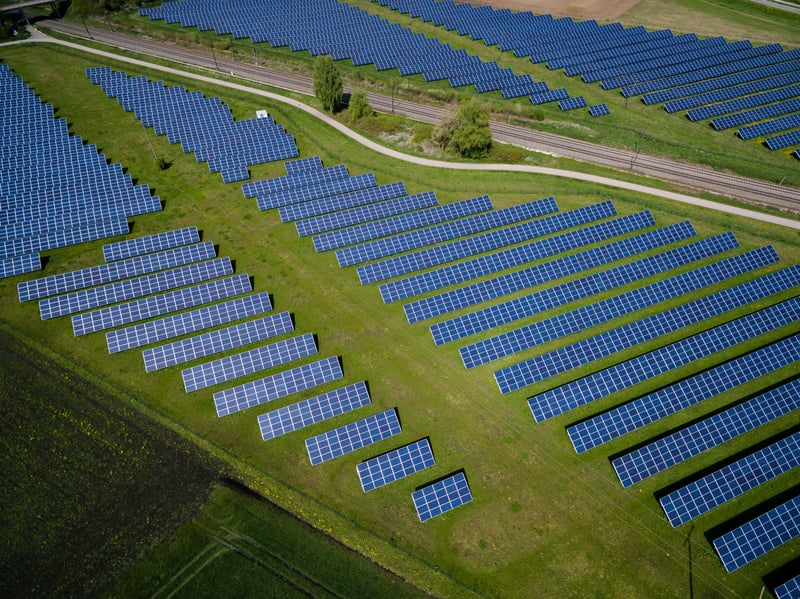With labour shortage, increasing costs and tightened margins as the backdrop, ESG could be one of the last things on your mind.
That said, we have also seen a rise in demand to act now before it’s too late when it comes to the Environment; to enforce more targets when it comes to Social; and to stop and reflect when it comes to Governance.
It is only a matter of time before ESG becomes some sort of international business code of conduct. (We’ve previously listed some common ESG acronyms, standards and movements to get you started in this guide)
In this article, we’ll explore this topic in terms of statistics, where we are at and where we want to go. Key themes:
1. General outlook:
2. Supply chain
3. Reporting
4. Investors
5. Impact
6. Board
7. Strategy
8. Barriers
9. Employees
Environment (E)
Globally, the built environment generates 30% of total greenhouse gas emissions, and construction uses approximately 32% of the world’s natural resources. (CIOB)
Only 40% of respondents felt that reducing greenhouse gas (GHG) emissions is well-established in the construction sector. (GlobalData)
61% said they had experienced increasing client demand for sustainable construction methods. (GlobalData)
75% percent of Australian CxOs say their companies are concerned about climate change; a figure higher than the global average (63%). (Deloitte)

Social (S)
Women currently make up 13% of the building and construction industry's workforce and, of those, only 2% are in trades. – Australia (ABC)
Women make up 11% of the construction industry’s workforce in the US. (Statista)
Indigenous people make up around 3% of the population but only own around 0.06% of Australian businesses. (NIAA)
Governance (G)
Top 3 ESG issues of concern in construction: “health and safety” (72%), “ethical behaviour” (63%) and “corruption and bribery” (62%). (GlobalData)
The average cost of a corporate data breach or consumer privacy violation incident is USD 4.35M. (IBM)
It is estimated that about 30% of the money that governments spend on infrastructure is lost through corruption, mismanagement, and through clear stealing. (UNSW)
Without significant interventions, by 2030 up to US$5 trillion could be lost annually to corruption in construction across the world. (RICS)
Supply chain
By 2025, companies globally expect to increase their diversity spend goals by 50% to an average of 13% of spend. (Hackett Group)
67% of participants were involved in contracts or workstreams involving corporate social responsibility style targets or obligations. (Building in the Dark)
71% selected 50% or higher levels of reliance on third parties to meet these CSR targets. (Building in the Dark)
Yet, sourcing suitable third parties is not always easy. 43% of respondents thought it was very challenging. (Building in the Dark)
59% of engineering and construction firms said a sustainable supply chain is a competitive differentiator. (Oxford Economics)
When it comes to the ethical sourcing of necessary labour, only 50% have significant or complete visibility into their own processes, and just 17% have the same level of visibility into their suppliers’ labour-related processes. (Oxford Economics)
51% of Australian companies have required suppliers and business partners to meet specific sustainability criteria, compared to the global 46%. (Deloitte)

Reporting
There are currently over 600 ESG reporting provisions across the globe, many of which apply a different lens to the interpretation and evaluation of sustainability. (EY)
50% of the top 24 Engineering & Construction firms in the US publish a separate sustainability report, in addition to their annual reports. (EY)
89% of investors surveyed said they would like to see reporting of ESG performance measures against a set of globally consistent standards become a mandatory requirement. (EY)
Only 20% of companies in the ASX 200 are explicitly linking material risks and uncertainties identified in the ESG report to the financial statements. (PwC)
43% of the ASX 200 don’t disclose information on the negative impacts they’re having across their value chain. (PwC)
Value placed on ESG by investors
98% of investors evaluate ESG performance based on corporate disclosures - US. (EY)
92% of infrastructure investors have identified ESG performance as instrumental for a clear long-term value creation strategy, while 82% of respondents expect scrutiny of ESG issues to significantly increase in the next three years. – UK (GHD)
ESG risks had become a more important part of investment decision-making and portfolio construction, with 74% of investors surveyed stating that the COVID-19 pandemic had made them more likely to divest based on poor ESG performance - Global. (EY)

Impact of adopting ESG
There is a positive relationship between ESG and financial performance for 58% of the “corporate” studies focused on operational metric such as ROE, ROA, or stock price. (NYU)
Globally, 49% of CxOs agree their sustainability efforts will have a positive impact on brand recognition and reputation, 46% on customer satisfaction. In Australia, the top benefits are employee morale (44%) and brand recognition (42%) (Deloitte)
When the ESG-related news was material and positive, the company’s stock price outperformed the market by an average of 0.6%, or 60 basis points, on the day the news emerged. – US (Harvard Business School)
Businesses who employ a diverse workforce are 21% more likely to have above-average financial returns with a gender diverse team and 33% more with a racially diverse team. (Associated General Contractors of America)

Board awareness
Roughly 70% of directors reported that they are only moderately or not at all effective at integrating ESG into company strategy and governance. (BCG)
The top barrier to improved ESG performance was the overall ability of the organization to execute (43%) followed by the potential for cost increases (35%). (BCG)
More than a third (41%) of ASX 200 companies did not include specific ESG skills within their respective board skills matrices. (PwC)
Strategy
70% of the ASX 200 have a sustainability strategy but only 21% have sustainability as an integral part of their strategy. (PwC)
Only 36% of the ASX 200 have a net-zero target, 69% don’t provide any details around timing, with only 19% disclosing timeframes for targets related to their long-term vision. (PwC)
Among companies that have made a net-zero commitment, only 55% of directors reported that their company has prepared and published a plan for hitting that target. (BCG)
Less than half (47%) of the ASX 200 have a gender diversity policy with measurable targets and progress against those targets. (PwC)

Barriers
64% of respondents said that the main barrier to investment was construction cost, and 46% cited a lack of return on investment. (GlobalData)
47% of engineering and construction firms said increased process complexity is an obstacle to meeting their sustainability goals. (Oxford Economics)
Nearly a third of CxOs said the difficulty of measuring their organisations’ environmental impact was a top barrier. (Deloitte)
Employee perspective
51.8% would exclude companies that don’t match their beliefs in environmental responsibility, and 51.4% in diversity and inclusion. – Global (BCG)
66% of construction employees think their organisation focuses the right amount on ESG. – Australia (BCG).
One third say that ESG performance is a reason to recommend their organisation as an employer. – Australia (BCG).

Interested in understanding how Felix can help with ESG? Click here.

Recent Articles
Supplier Relationship Management: Top 10 Do's and Don'ts.
Supplier relationship management (SRM) is the backbone of a resilient supply chain. When procurement teams manage suppliers effectively, they reduce risk, improve performance, and streamline delivery across large project environments. Whether you are modernising your vendor management system or replacing manual spreadsheets, these essential do's and don'ts will help you strengthen your SRM strategy.
2025 in review: Milestones, insights and achievements
2025 – a year of that brought meaningful developments for Felix as we continue to address the evolving needs of organisations navigating complex supply-chain environments.
Top 10 reasons for a centralised vendor database
As organisations grow, so does the complexity of managing vendor relationships. Many still rely on spreadsheets or siloed systems, which can lead to inefficiencies, data inconsistencies, and compliance risks. A centralised vendor database offers a smarter, more scalable solution that brings structure, visibility, and control to procurement operations.
Here are the top 10 reasons why centralising your vendor data is a strategic move.
Let's stay in touch
Get the monthly dose of supply chain, procurement and technology insights with the Felix newsletter.







